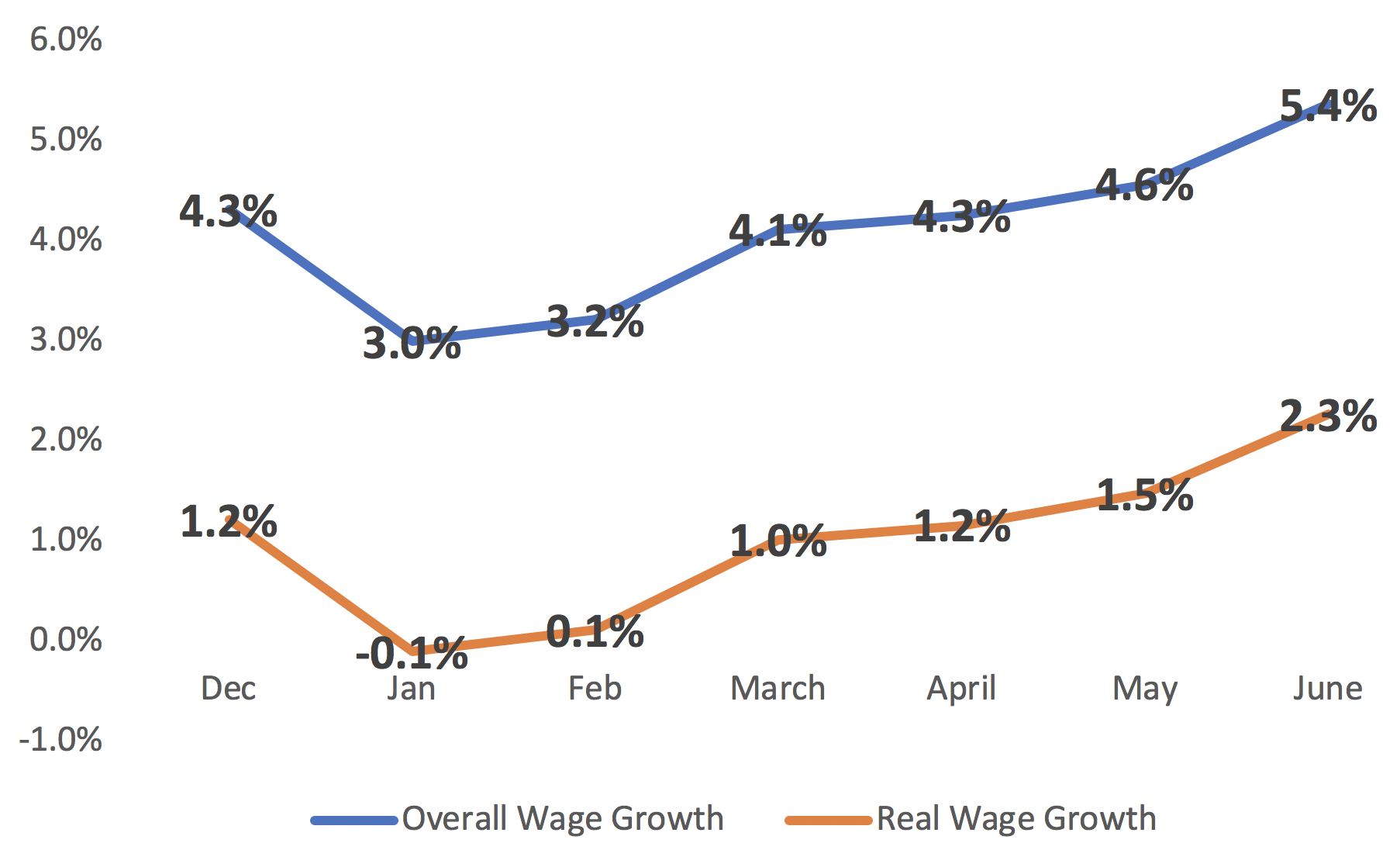Growth in Colorado Wages Promising, But Questions Linger
 It looks like Colorado wages finally got the memo about the state’s strong economic growth and near-record low unemployment. Workers are starting to see benefits, as average hourly wages grew by 5.4 percent since June 2017, going from $27.25 to $28.71 per hour.
It looks like Colorado wages finally got the memo about the state’s strong economic growth and near-record low unemployment. Workers are starting to see benefits, as average hourly wages grew by 5.4 percent since June 2017, going from $27.25 to $28.71 per hour.
Related: Automation in Colorado: Preparing for the Future of Work
Even adjusting for inflation, Colorado wages grew by 2.3 percent. We used the projected 3.1 percent annual rate for the Denver, Aurora, Lakewood consumer price index. If inflation comes in below projections, real wage increases would be larger. Nationally, inflation is growing at 2.9 percent.
Average wages have gone up each month this year and increased by a larger percentage each month as shown in the chart. After adjusting for inflation, real wages have gone up each month since February.
Related: A Deeper Look at Wage Gains in Colorado
This is welcome news for workers who have seen their average wages remain flat for most of the past two decades.
The next question we need to ask is about who’s seeing these increases, and if there is more work to be done at the low- and middle-income levels. Since we don’t know how wage gains are distributed among different kinds of jobs and pay levels, finding these answers is critical. Nationally, after adjusting for inflation, wages for non-supervisors and production workers dropped by 0.2 percent over the past year. It’s possible most of the wage gains have gone to Colorado’s higher paid workers.
Read more about Colorado wages:
Testimony: Support Local Control of Minimum Wage in Colorado
Colorado Legislators Must See the Forest for the Trees
Modernizing Overtime Rules in Colorado
New Data Shows Colorado Wages Struggle to Keep Pace with Inflation
